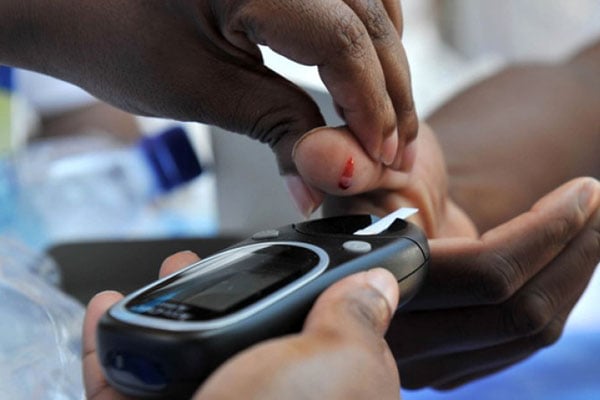Health officials decry diabetes drugs stock-outs

When a person produces little or no insulin or does not properly use the insulin that is produced, then the glucose in the blood rises, leading to a disease condition called diabetes or locally sugar diabetes
What you need to know:
- The shortage of insulin comes a month after the government grappled with a severe shortage of other essential drugs in various public health facilities.
The Assistant Commissioner for Health Services in-charge of Non Communicable Diseases (NCDs) at the Ministry of Health, Dr Gerald Mutungi, has said the chronic stock-outs of diabetes drugs in various public health facilities, continues to put the health of thousands of patients at stake.
Data from the World Health Organisation (WHO) indicates that over 789,750 Ugandans had diabetes as of 2022.
Speaking at a diabetes spotlight meeting in Kampala yesterday, Dr Mutungi also confirmed that some hospitals lack adequate consumables and equipment, a gap that he said was forcing health workers to erroneously treat patients without monitoring their blood sugar levels.
“According to our essential drugs list, the drugs for diabetes include, Metformin, Dapagliflozin and insulin. These drugs are in the country but because of the overwhelming number of patients, they often get out of stock,” Dr Mutungi said.
“Sometimes patients are given a refill of the drugs without testing their blood sugar levels. Quite often, patients come to our clinics, and the strips are not there. This is unacceptable because you are giving drugs without knowing how the previous drugs worked or how patients responded,” he added.
The shortage of insulin comes a month after the government grappled with a severe shortage of other essential drugs in various public health facilities.
Dr Mutungi said patients who don’t adhere to diabetes treatment in most cases develop severe complications, including renal failure, heart failure, stroke and amputation or even death.
“They come with gangrene and we cut off their legs because they have not controlled their blood sugar and the reason for not controlling the blood sugar is because the drugs are out of stock.” he said.
Gangrene is death of body tissue due to a lack of blood flow or a serious bacterial infection.
Dr Mutungi revealed that although health facilities receive their consignments from the National Medical Stores after every two months, the drugs do not last for even a month.
He noted that in such situations, a patient who is supposed to receive drugs that can take her or him for a month ends up taking less drugs.
He noted that increasing the budget for the NDC drugs and formation of patients clubs can help address the shortage.
“Patients can contribute some little money so that they can use their small contribution to fill the gap whenever there is a shortage. It is really very dangerous for them to take drugs without knowing their blood sugars and also going for a month a month or two, without drugs,” he said.
The chairperson of Entebbe Diabetes Patients’ Association, Ms Rachael Kisakye, said some of the patients had succumbed to diabetes due to lack of medication.
Dr Edris Mutebi, the head of Endocrine Unit at Mulago National Referral Hospital, noted that drug and supplies stock-outs and inadequate human resources were a challenge to effective service delivery.
Ms Margaret Muhanga, the State Minister for Health in-charge of Primary Health Care, said diabetes affects all age groups, including children and that adopting preventive measures such as exercising and improving nutrition could minimise the risks of NCDs.




